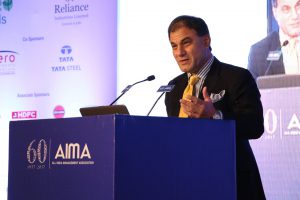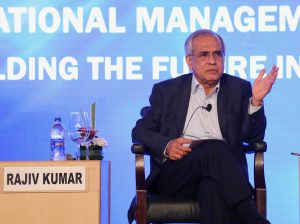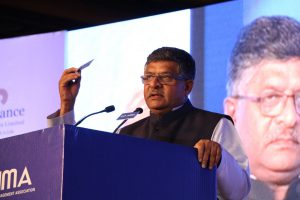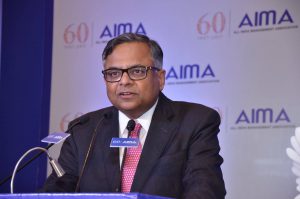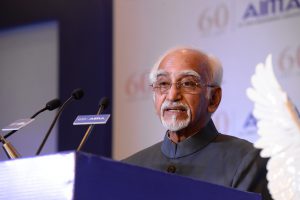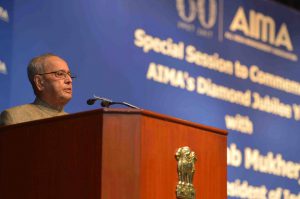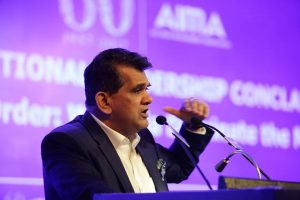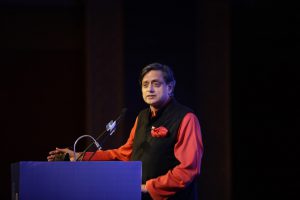Navi Radjou, Innovation and Leadership Thinker/Advisor (Silicon Valley), Author of Conscious Society (2018), Co-author of Frugal Innovation and From Smart To Wise sharing his insights on ‘Beyond Smartness: Leading Wisely in a Conscious Society’ at AIMA’s 15th National HRM Summit 2017. Excerpts –
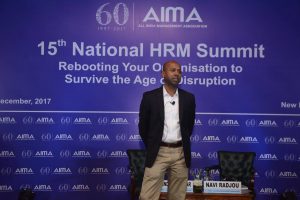
Navi Radjou at AIMA’s 15th National HRM Summit
Assuming we are entering the age of disruption, that is going to happen and is already happening, it’s a given now. How are you going to deal with this disruption? I think there are two approaches, there is a smart approach and there is a wise approach. Of course, if I were standing at Silicon Valley, where I live, and ask these questions to HR leaders there, they will say of course we need to address this disruption smartly because it’s all about smartness in Silicon Valley. And it is true because in the Western societies and increasingly in developing countries like India, smartness, and particularly intelligence, sells well. We heard about marketing right? So anything smart packaged as a marketing slogan sells well, for example, smartphones, we will be wearing soon smart clothes, smart appliances at home, like smart fridges that talk to us. We also have smart homes and buildings now, and then everybody is obsessed now about building smart cities. And not only that, it goes even further because if you read Yuval Noah Harari’s book. It is about man’s attempt to become God. And his interpretation of God is the ultimate mind, the super smart, or as Aurobindo calls, the supermind. And what he’s saying is that essentially we are not smart enough and the rich people in the future will be able to use, like embed technology in their brain to augment intelligence, we call it augmented intelligence.


